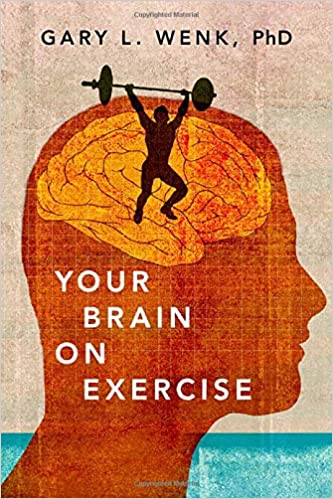Book Review: Your Brain on Exercise
Published:
Gary Wenk’s Your Brain on Exercise is a slim, myth-busting survey on the benefits of exercise for the brain. According to his review of the academic literature, the cognitive effects of exercise are modest, while anaerobic exercise may pose risks via oxidative stress and inflammation.

Here’s the paperback and audiobook.
Utility: ⭐⭐⭐ (3/5)
Wenk has strong academic credentials and provides some helpful insights on what works and what doesn’t. He provides evidence that light, aerobic exercise (e.g. walking) may be beneficial for cognitive health, while anaerobic exercise (e.g. weight lifting) may be harmful. Exercise is no cure-all for enriching the young, rejuvenating the old, curing the depressed, or recovering the injured. Wenk calmly recognizes the physical benefits of exercise, but seems to be overly antagonistic to exercise based on cognitive effects alone.
Writing: ⭐⭐ (2/5)
Most passages read fine as high school textbooks. Wenk is clear and varies up sentence structures. The bite-sized chapters also help. However, the content itself is simply dry. He doesn’t do a good job of repackaging dense nuerochemical knowledge into clear, entertaining writing. I didn’t particularly enjoy reading the book.
Notes
- Moderate exercise can improve brain function and forestall the effects of aging. The ffects are mediated by BDNF, although the mechanism is not clear.
- Intense exercise can cause more ROS and inflammation, which is harmful to the brain and induces aging.
- Exercise can sometimes behelpful for alleviating depression and Alzheimer’s. However, for patients with serious cases, exercise may be ineffective.
- Like food, exercise is best in moderate quantities, such as a daily walk.
